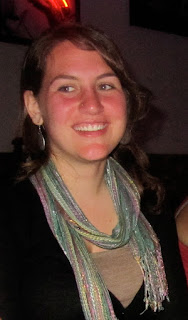Lately I have been struggling with the existence of violence. It sounds like a simple and silly issue to not understand. I mean, of course there is violence in the world! We see it everyday. But I have been wondering why? I mean, you can say that people are violent because they are angry. But everyone has their problems, their issues, their unhappiness, and not everyone takes it out in the form of violence. I am especially perplexed by hate crimes. Who do people committing hate crimes think they are? Some say they think that they are protecting a country or a community. If so, who are they to take on this job? They are not the government, CIA, FBI, or police. Why is personal anger and rage taken out in the form of violence on perfect strangers?
After 9/11, there were about 19 racially motivated murders. We watched United We Fall, a documentary about the persecution of Sikhs in America after 9/11. Sikhs are not even Muslim, obviously! They’re Sikh! Just because Sikhs wear turbans, some were murdered. The night before, we had watched American History X. This movie details the life of an American Neo Nazi. It chronicles his radicalization which culminates in his murder of three black men. It demonstrates how he took the anger and grief he experienced after his father’s death and translated it into violence. Before his father died, he had made several racist comments in front of his son. The father was not a violent Neo Nazi. He did not murder people who were not white. He just made passing racist comments. But such a translation passed from father to son and rooted in language demonstrates the power of words.
It is in language where the sentiments that can eventually lead to hate begin. There are so many words and phrases in the English language that must mean something, must have come from somewhere, but are used unconsciously. How many times do you hear, “that’s gay,” you’re “retarded,” or “a fag.”? How often is there talk about “those people,” “their type,” or “that group”? It is in language, the subtle remarks we make, that we can find evidence of the prejudices present in our society and lives. Like racism, sexism, agism, and all other prejudices are woven into the fabric of our society, they are grounded and present in our language. Furthermore, it is not as if these terms that we use unconsciously have lost their meaning completely. Language can desensitize us to prejudice. We become so comfortable with using offensive terms and we incorporate them into our vocabulary so much that it is only a small leap to inappropriate action. From there, it can spiral to hate crimes.
I have been especially preoccupied with language recently because I have been working at Thandokhulu Senior Secondary School where Xhosa is spoken. All of the classes are taught in English, but the first language of teachers and students is Xhosa. This language barrier has been one of my greatest challenges as a teacher. How many times do students talk behind their teacher’s back in whispers? In my classes, the students do not even need to whisper because they have this “secret” language that I as their teacher cannot understand.
With that said, such a barrier has improved my understanding of nonverbal communication. More and more I am able to tell when students are talking about me, subjects outside of class, or even continuing a discussion we were having in class in Xhosa.
My experience teaching so far has been unbelievably rewarding. I definitely have my hard days, when I am not sure what exactly my role is at the school, when it seems as though I am just babysitting these students to pass the time. But then there are the moments where students will wait after class to get extra help with English or just to ask me questions about the US. I have talked to my classes about how I respect them and do not corporally punish them and how they must, in turn, give me that same respect. They are in Grade 10 and they understand this concept. Simply treating these students like they are adults has allowed them to mature on their own terms.
What I am trying to say, I suppose, is that language is all around us. Communication is made constantly and is not necessarily in the form of words. But words do carry weight with them. Choosing hateful words and phrases leads to hateful thoughts and actions. It is necessary to remove unconscious prejudice from our lives and this removal must begin with our cleansing of the language that we use.


This comment has been removed by a blog administrator.
ReplyDelete